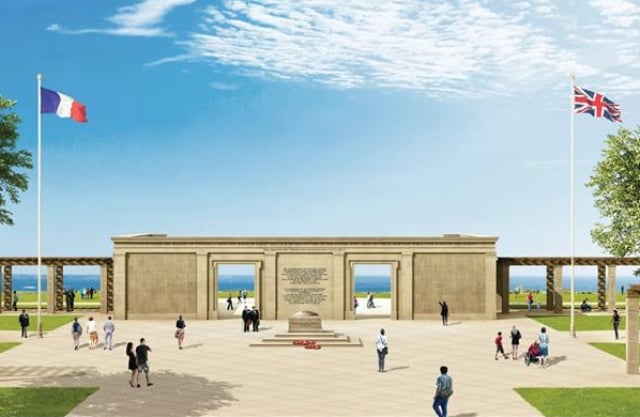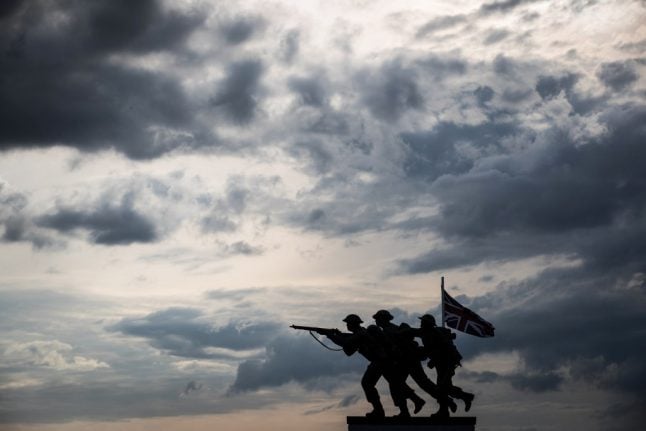Normandy this morning.
Europe, despite everythingvia @arthurberdah pic.twitter.com/tLcCUAuXSs
— Sophie Pedder (@PedderSophie) June 6, 2019
In fact, a heated debate has been brewing in the small Normandy village of Ver-sur-Mer, the village which was once the site of one of the most pivotal days in 20th century war history, the Normandy Landings.
Back in January, just six months away from the inauguration deadline, the memorial site had yet to be authorised.
So, why is the memorial the source of so much controversy?
 Photo: AFP
Photo: AFP
The opposition comes from a handful of Ver-sur-Mer’s residents, who feel their commune shouldn’t have been chosen as the memorial site as they fear it will mean their protected, agricultural land is turfed over and destroyed.
“It's not that we’re not grateful to the English, we will be until the end of time for everything they did,” Maxi Krause, a local resident who organized an opposition march made up of just three protesters to “inform the public”, told France 3 in January.
“There’s already the British cemetery in Bayeux, with a huge grassy area all around it where they could add the engraved names (of British soldiers that would be honoured in the prospective Ver-sur-Mer site).”
Opponents to the memorial, which will cost in the region of €33 m, are equally apprehensive about the planned construction of a car park for visitors and the sale of their municipal stadium to be incorporated into the memorial site, a project which in total is budgeted at €20 million, all paid for by British taxpayers.
Also of concern to them is that the memorial bus routes will go through their village rather than bypassing it, bringing with it more traffic and commotion but not necessarily more money, as visitors will only be on short stays.
British association Normandy Memorial Trust was entrusted with buying the land in Ver-sur-Mer to honour the 20,000 British soldiers who disembarked on the beaches of Normandy on June 6th 1944.
Not all opponents are completely against a memorial being erected, but most feel the location should be changed.
D-day, the largest seaborne invasion in history, saw as many as 19,000 troops on both sides die during the landings.
French words to know:
Le Jour J: D-day
ériger : erect/put up
le débarquement: landing
reconnaissant: grateful
l'échéance: delivery date
appréhensif: apprehensive
gazonner: turf over
une site classé: protected area
les riverains: residents
contourner: bypass





 Please whitelist us to continue reading.
Please whitelist us to continue reading.
I am English and I agree that the location of the memorial should be changed. The car park, municipal centre, acres of grass endless visitors will affect the people of Ver-Sur-Mer badly. Of what use is yet another memorial? Those brave men live on in our hearts and will never be forgotten.
Very true. There is absolutely no need for another monument, there are enough already. Why not one at Slapton Sands where most of the training occurred.
Unfortunately, however redundant you might think a further memorial might be, the reality is that opposing it will be taken very much amiss by most Brits – military or not. It may inconvenience village life a little, but then the 20000 killed on the beaches were just a little inconvenienced at the start of their adult lives. It’s said that the French were more humiliated by the British liberation than the German Occupation – don’t prove that right with these petty objections.